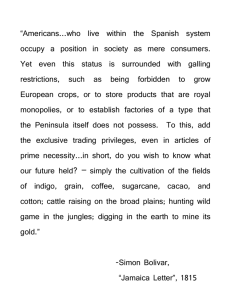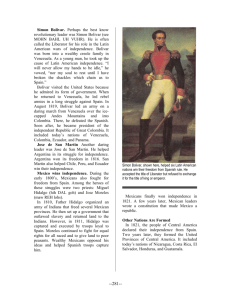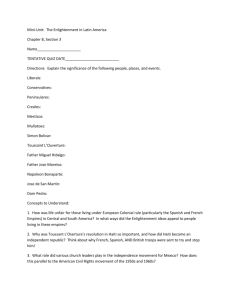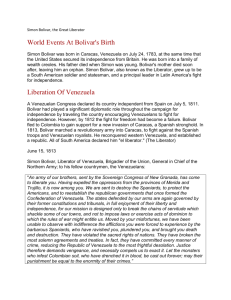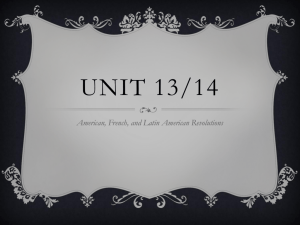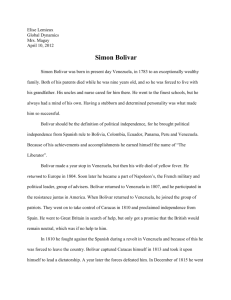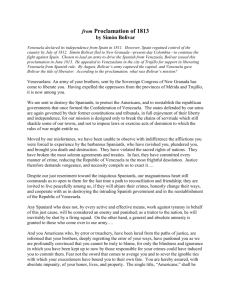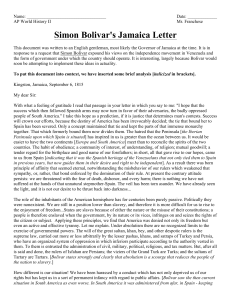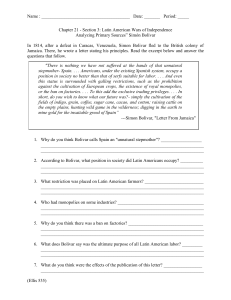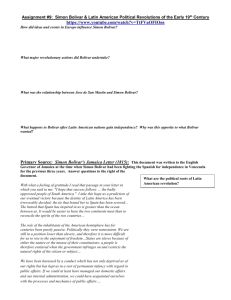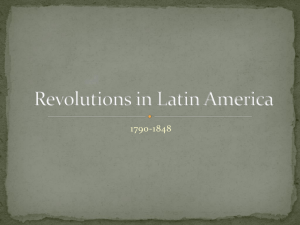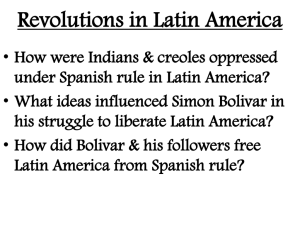Simon Bolivar - AP World History
advertisement
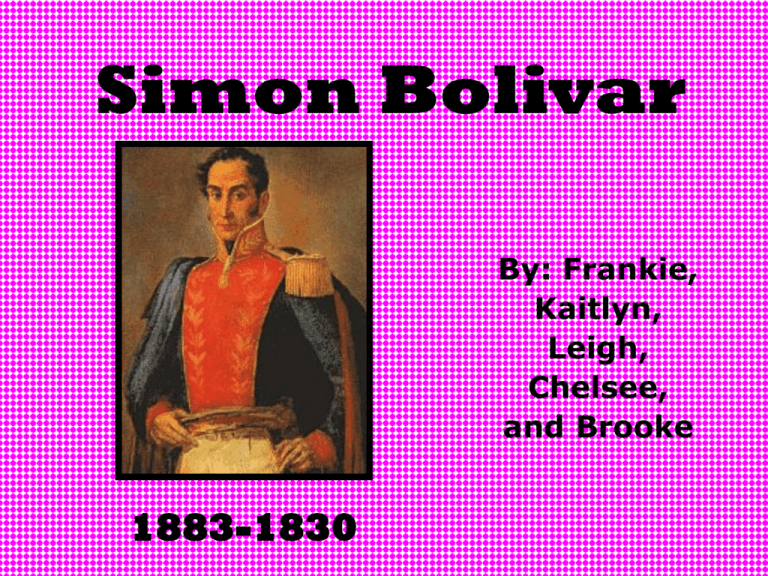
Simon Bolivar By: Frankie, Kaitlyn, Leigh, Chelsee, and Brooke 1883-1830 •He was born on July 24, 1783 in Caracas, Venezuela. •He was educated by tutors. •One was Simon Rodriquez, whose ideas and educational style heavily influenced him. •His parents both died when he was young and he inherited a small fortune. •In later years, Bolivar used part of his inherited mineral income to finance the South American revolutionary wars •In 1799, he went to Spain to complete his education. •As a young man, he traveled in Europe. •At the age of 19, Simon married a women of Spanish nobility named Maria Teresa. •Less than a year after their marriage she was diagnosed with yellow fever. •After a brief trip to Venezuela, she died. •He never remarried •Was a Creole military officer •His military success led to the creation of the independent state of Fran Colombia. •He is said to have been one of South America’s greatest generals. •Simon organized and led military forced to free the northern portion of South America from Spanish rule. •His direct action resulted in independence for Columbia, Venezuela, Peru, Ecuador, and Bolivia. •Bolivar united and motivated a small group of followers to defeat the Spanish occupiers through surprise attacks and wise decisions in the midst of battle. •Every city and town in Venezuela and Columbia has a main square known as Plaza Bolivar •Bolivia is named after him •He was the leader of several independence movements throughout South America, known as Bolivar’s War •Together with Jose de San Martin, Bolivar is regarded as one of the liberators of Spanish South America •He was not as successful in the role of government leader as he was in the role of a general leading revolutionaries •Had a harsh, autocratic rule •His army never numbered more than one thousand •He is sometimes referred to as the George Washington of South America •He displayed considerable military skill •He was fearful of anarchy •Bolivar rejected all attempts to be crowned king •Bolivar remained firmly committed to the cause of independence and republican government until his death. •He resigned his presidency on April 27, 1830, intending to the country for exile in France possibly. •He has already sent crates containing his belongings ahead of him to Europe. •He died before setting sail after a painful battle of tuberculosis on December 17, 1830 in Santa Marta, Colombia. •His remains were moved to Caracas in 1842 where a monument was set up for his burial.
